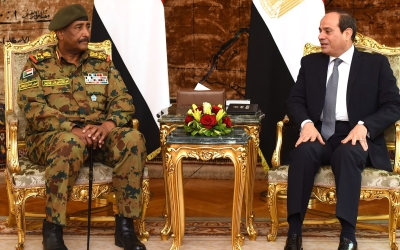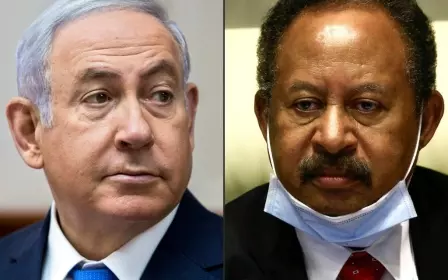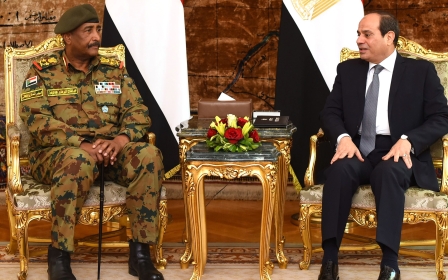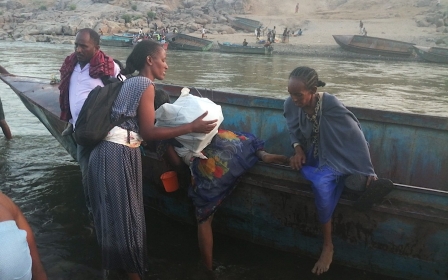Sudan's civilian government condemns army chief's new council
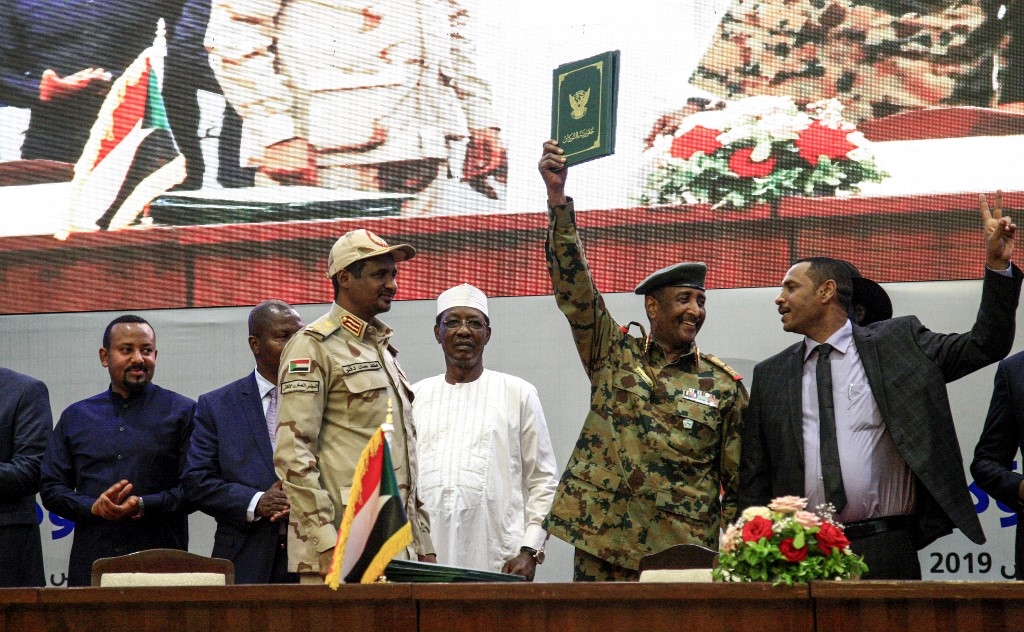
Members of Sudan's transitional government condemned its army chief's decision to issue a decree to create a new body with broad powers, according to local media.
Earlier this week, General Abdel Fattah al-Burhan, who heads the Sovereignty Council, which is comprised of civilian and military leaders, established a "council of transition partners," or CTP.
New MEE newsletter: Jerusalem Dispatch
Sign up to get the latest insights and analysis on Israel-Palestine, alongside Turkey Unpacked and other MEE newsletters
Details of the CTP only emerged this week, with the Forces for Freedom and Change (FFC) umbrella group, which led the demonstrations that last year toppled longtime ruler Omar al-Bashir, expressing its opposition to Burhan's decree.
Sudan's SUNA news agency said that Burhan's new council would be "responsible for leading the transition period, resolving differences [between those in power] and having all the necessary prerogatives to exercise its power".
Prime Minister Abdalla Hamdok's transition government rejected the move and said that Burhan had overstepped the mark by conferring new powers on the new body.
Local media reported that Hamdok, a former public administrator, had told the FFC of his disagreement with the CTP's powers.
"Its role must be purely consultative and in no case must it interfere in the activities of the executive and legislative bodies, nor those of the Sovereign Council," Hamdok said, according to local media quoting political sources.
Government spokesman Faisal Mohammad Saleh said on Friday that Burhan's decree contradicted the "constitutional declaration" signed in August last year between pro-democracy activists and military generals.
"It is imperative that we declare our disagreement with the creation of the CTP in its current form," said Saleh, who is also culture and information minister.
Saleh added that the government and Sovereignty Council agreed to limit the CTP's role to "coordinating and resolving disagreements that might emerge during the transitional period".
Middle East Eye delivers independent and unrivalled coverage and analysis of the Middle East, North Africa and beyond. To learn more about republishing this content and the associated fees, please fill out this form. More about MEE can be found here.


